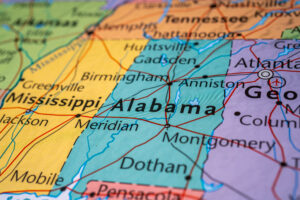 Little by little, Alabama is letting out the line when it comes to who can recovery loss of use damages after an automobile has been in an accident. In addition to the other damages recoverable, loss of use (reasonable value of use or rental of a car while the owner is deprived of use of damaged vehicle during repairs), wrecker costs, etc., may also be recoverable.[1] Loss of use is recoverable for a reasonable amount of time until the vehicle is replaced or repaired. With regard to loss of use, the reasonable value of the hire or use of the car while deprived thereof, the expenses of removing it to and from the place of repair, and maybe other elements may enter into the real loss.
Little by little, Alabama is letting out the line when it comes to who can recovery loss of use damages after an automobile has been in an accident. In addition to the other damages recoverable, loss of use (reasonable value of use or rental of a car while the owner is deprived of use of damaged vehicle during repairs), wrecker costs, etc., may also be recoverable.[1] Loss of use is recoverable for a reasonable amount of time until the vehicle is replaced or repaired. With regard to loss of use, the reasonable value of the hire or use of the car while deprived thereof, the expenses of removing it to and from the place of repair, and maybe other elements may enter into the real loss.
Until 2012, Alabama courts have decreed that the measure of damages for property loss when a vehicle was totaled was limited to the value of that vehicle immediately before the collision, less its salvage value, if any[2]. Under that rule, one could not recover damages for both the total loss of the vehicle and the loss of use of that vehicle.[3]
In 2012, the Supreme Court in Ex parte S&M, LLC—a case involving a collision between a taxicab (commercial vehicle) and another vehicle—ruled for the first time that with regard to a damaged commercial vehicle that is a total loss, the recovery of reasonable loss of use damages is allowed during the time reasonably required to procure a replacement vehicle.[4] The court surveyed a number of jurisdictions that had adopted the so-called “modern approach” to loss-of-use damages recoverable when a commercial vehicle is destroyed. However, Ex parte S&M seemingly, and somewhat arbitrarily, limited loss of use damages for total loss vehicles only to commercial vehicles. The ruling did allow for loss of use damages with respect to privately owned vehicles.
In 2024, the Court of Appeals in Myers v. Alfa Mutual Insurance Company, was asked to extend the loss of use rule involving totaled vehicles to privately-owned vehicles also.[5] The court refused to extend the loss of use rule to privately-owned vehicles, stating:
We…remain bound by the preexisting rule prohibiting loss-of-use damages when the irreparable vehicle at issue is privately owned. It is up to the supreme court to expand its holding in Ex parte S & M to cover situations involving those kinds of automobiles, if it so chooses.
It is, therefore, clear that with regard to a damaged commercial vehicle that is not repairable, the recovery of reasonable loss of use damages is allowed during the time reasonably required to procure a suitable replacement vehicle. The Ex parte S & M, LLC decision overruled three older decisions which held to the contrary[6].
The Myers court did say that when it comes to recovery of loss of use damages for a commercial vehicle, there is no logical distinction between repairable and unrepairable damages. However, with regard to recovery of loss of use damages to a totaled non-commercial passenger vehicle, the answer still appears to be “no”—until the Alabama Supreme Court changes the law. While the S&M LLC decision appears to limit itself to commercial vehicles, the cases it overruled (Hunt and Lary), both dealt with non-commercial passenger vehicles, not commercial vehicles. In the S & M decision, Justice Woodall stated:
The decisions in Hunt, Fuller, and Lary are overruled to the extent that they conflict with the modified vehicle-damage rule set forth in this opinion. The Court of Civil Appeals’ judgment was entered in reliance on Hunt, and the circuit court’s judgment was entered in reliance on Fuller and Lary. Therefore, we reverse the Court of Civil Appeals’ judgment and remand the case for that court to reverse the circuit court’s judgment in favor of the estate and then to remand the case to the circuit court for further proceedings consistent with this opinion.
Unless and until the Alabama Supreme Court specifically includes non-commercial passenger vehicles in a later opinion, owners of non-commercial passenger vehicles are still prohibited from recovering loss of use damages for totaled non-commercial vehicles. The S&M opinion itself cites to cases from California and Oklahoma addressing commercial vehicles. In addition, Justice Woodall’s language quoted above intimates that Alabama is carving out a commercial vehicle exception to the general rule (the general rule being that there is no loss of use for a totaled vehicle).
[1] Hunt v. Ward, 79 So.2d 20 (Ala. 1955).
[2] Fuller, supra.
[3] Fuller, supra.; Hunt, supra.
[4] Ex parte S & M, LLC v. Burchel, 120 So.3d 509 (Ala. 2012), overruling Hunt v. Ward, 79 So.2d 20 (Ala. 1955), Fuller, supra., and Lary v. Valiant Ins. Co., 864 So.2d 1105 (Ala. App. 2003).
[5] Myers v. Alfa Mut. Ins. Co., 2024 WL 4522424 (Ala. App. 2024).
[6] The decision overruled Hunt v. Ward, 79 So.2d 20 (Ala. 1955), Fuller, supra., and Lary v. Valiant Ins. Co., 864 So.2d 1105 (Ala. App. 2003).






